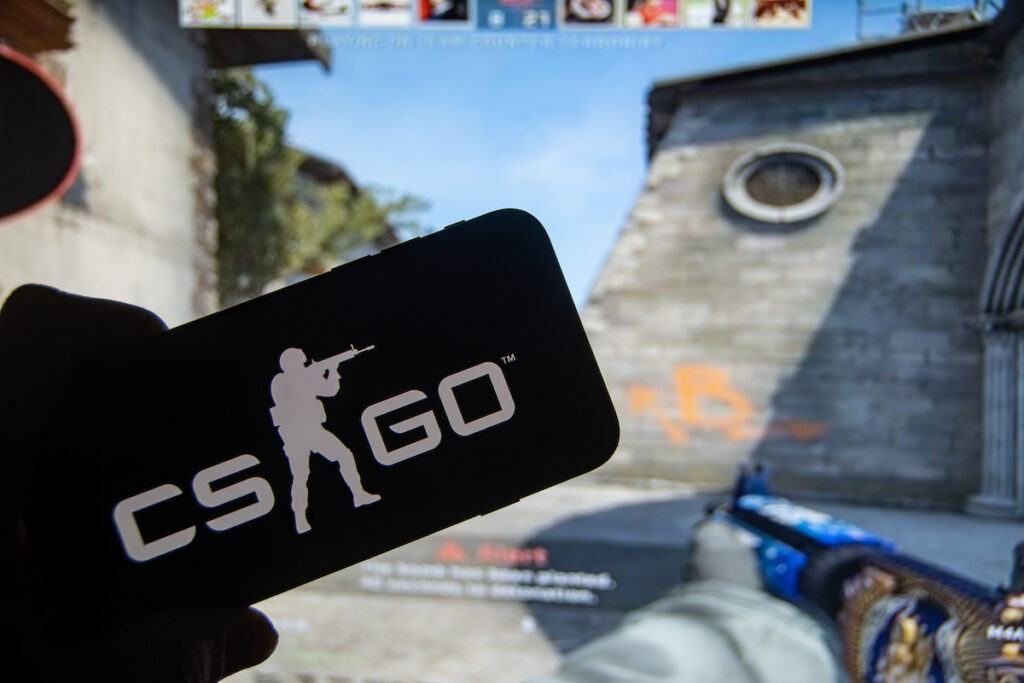The release of Steam’s latest policy update, which condemns several activities, has caused uncertainty about the future of skin gambling in Counter-Strike: Global Offensive as players eagerly await the launch of its sequel, CS 2.
Valve’s online gaming platform, Steam, has revised its policies to tighten restrictions on online gambling, leaving the fate of skin gambling in Counter-Strike: Global Offensive uncertain, just months before the release of its much-anticipated successor, Counter-Strike 2.
The updated guidelines, known as “Steam Online Conduct,” outline prohibited activities for Steam users, including posting illicit or unsuitable content, participating in illegal activities, and harassing other users. These changes to the policy affect players of Counter-Strike: Global Offensive, who are now uncertain about the future of their gambling pursuits.
For CS:GO fans, skin trading and wagering has become a popular pastime that involves betting on in-game cosmetics in the hopes of acquiring better ones. Players have been able to place bets on professional matches or participate in lotteries using their in-game items as currency through various platforms.
Valve had previously taken legal action against gambling websites that required access to the Steam API to facilitate the betting process. However, since not all gambling sites for CS:GO use the Steam API, players have still been able to engage in betting activities.
With Steam updating its Online Conduct policy, it appears that the time for CS:GO skin gambling may be drawing to a close.
The policy update imposes additional restrictions on users, explicitly prohibiting commercial activities, including contests, the buying and selling of Steam accounts, advertising, and gambling. The latter restriction is particularly significant for CS:GO players, as it effectively puts an end to skin gambling activities on Steam.

Although this policy update may not immediately affect players, it suggests that Steam may be scrutinizing websites that offer wagering using in-game items more closely.
Players who participate in this type of activity could potentially face penalties from Steam, as Valve is both the owner of the platform and the publisher of all Counter-Strike games.
In the statement released by Steam regarding the guidelines update, Valve mentioned that it was merely meant to provide additional information on the existing regulations on the platform.
Valve’s recent announcement of the release of Counter-Strike 2 in Summer 2023 has reignited players’ interest in CS:GO skins. As per Valve, all cosmetics from CS:GO will be transferrable to Counter-Strike 2, leading to an increase in the value of all cosmetics and loot boxes listed in the community market. Players are now more eager to acquire the rarest weapon skins available in the game.
In essence, Steam’s latest policy update has cast doubts on the future of skin gambling in Counter-Strike: Global Offensive, just as players await the release of its sequel, Counter-Strike 2.
The policy update imposes stricter rules on users, particularly regarding commercial activities such as gambling. While this may not have immediate consequences for players, it suggests that Valve may be taking a closer look at websites that offer skin gambling using in-game items.
Nonetheless, Valve’s announcement that all cosmetics from CS:GO will carry over to Counter-Strike 2 has led to renewed interest in CS:GO skins, with players eager to acquire the rarest weapon skins in anticipation of the game’s release in Summer 2023.

